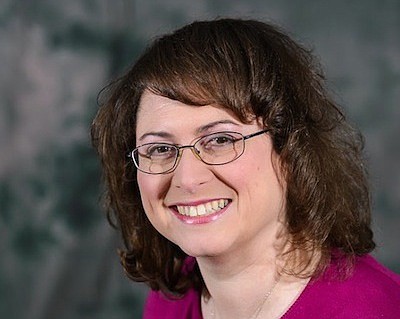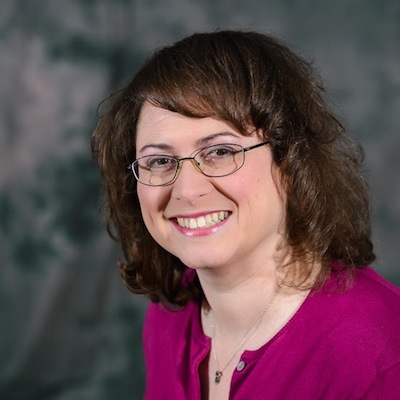Julie Bestry has been a Certified Professional Organizer since 2007, but she has always been inclined to create systems for keeping track of the many tasks and challenges work and life throw at us.
"I had been doing that all the way back to college, maybe even high school, but I was not aware it was a career beyond old movies where some guy would come into a factory to deal with efficiency," Bestry says.
In her first career in television programming, Bestry tackled a host of organizational projects including helping television stations get archives in order and improve operations. When she felt ready to shift career gears in 2001, it just made sense to launch Best Results Organizing.
"It's all about systems, and people who don't have systems try to juggle everything," she says. "They only know where something is if they remember where they put it. You shouldn't have to remember. There should be one logical place."
This interview has been edited for length and clarity.
Q: How did you end up an organizer after a career in television?
A: After 9/11 a lot of people were taking stock of their lives and looking for something more meaningful, but I didn't know exactly what I was looking to do next. I had been doing consulting on the side with TV stations, and I realized really I'm just teaching them how to be organized. After I had retired from TV, about a week later I went into the old Books A Million on Gunbarrel Road and picked up "Cool Careers for Dummies," and it opened to the page on professional organizers. I read it and I thought how funny there's a career for what I've been doing all my life.
Q: What does it really mean to be organized?
A: It's really important to start by distinguishing between being functional and the aesthetics. People feel guilty - they look at magazines like "Real Simple" or "House Beautiful," and they show perfection, they show a living room or kitchen that may not even be a real person's. There are no humans, there are no sticky jam hands on the fridge by the handle. But if you have to choose, being functional is more important than aesthetics. People are so focused on the aesthetics that they're not focused on creating systems that make things functional.
Q: If it's not about picture-perfect rooms, how do you know when you are organized?
A: Organized means you can find what you need when you need it and it is easy to access and retrieve, it is easy to put it away when you're done because you have a system and you assigned it a home - whether it's a coffee cup or your client's email address. I play a game with my clients. I ask them, 'If I offered you a 'round the world trip but you had to show me your passport in the next five minutes, would you be going on that trip or would you be crying in your beer?' Some can go to their fireproof safe or their desk and find me their passport. Others would be crying in their beer. They don't know because they came home from a trip and stuck it in a back pocket, maybe it went through the washing machine, maybe it's in the suitcase. If you have to depend on your brain to know where everything is, you're wasting mental space.
Q: Mental space is a sign of being organized?
A: Your brain isn't for storing things - it's for inventing things or putting words to your emotions or your plans. If you have to remember every single little thing, it's not going to work for you on the day you have the flu or three fires are going on at work and you have to pick up your kid early. I have a lot of clients who start out saying they won't remember any systems. I ask them, 'Where's your toothbrush?' They laugh and say, 'It's in the bathroom.' I ask, 'Are you sure it's not in your linen closet? On top of your carburetor?' It's in the bathroom with the toothpaste and the running water because you have a certain system. That's what a system is - the location where something belongs and the behavior to make sure you get it there. Being organized means focusing on function more than form, and that function comes from having a system that works for you. It doesn't mean it's the system you get from a book or magazine.
Q: What are the biggest benefits of getting organized?
A: It's not so you can say 'I'm organized.' There's no prize, no medal for being organized. But the more organized you are the more you can spend your time doing the things you care about with the people you love. The first benefit is saving time - you're not spending time looking for lost things or duplicating efforts. You're able to handle your time as you planned rather than freaking out because you can't find your keys.
Q: What are some of the barriers to being organized?
A: Multi-tasking is one of the mistakes people make. In the '80s, people started talking about multitasking. I thought that this was put to bed, but I still hear people say 'I'm a good multi-tasker.' It's like saying 'I'm a good crash dieter.' It's not something to be proud of. The truth is, our brains don't work like that. There's a reason the patting-the-head-and-rubbing-the-tummy thing is so difficult. Our brains do something called switch-tasking - we can switch from task to task. But you cannot keep your eye on the road and be invested in something else.
Q: What are a few things people can do immediately to start getting organized?
A: For business owners, plan and prioritize your day the day before. Make sure you identify what your highest priorities are. Block your time. Time-blocking is magical. Create zones of time for things. You have cabinets for cups, a shelf for copy paper, you want zones in your schedule to block time not for a specific task but for categories of tasks. Zones for marketing, financial work, problem-solving, networking, big-picture thinking. Consider your energy level as part of that - set the harder tasks when you have high energy. Get an accountability partner, someone you know, a desk buddy, a colleague in another part of the country. Write up goals, send them on Sunday. We're good at doing things for other people but not for ourselves. If you have an accountability partner, it's going to hold your feet to the fire.

